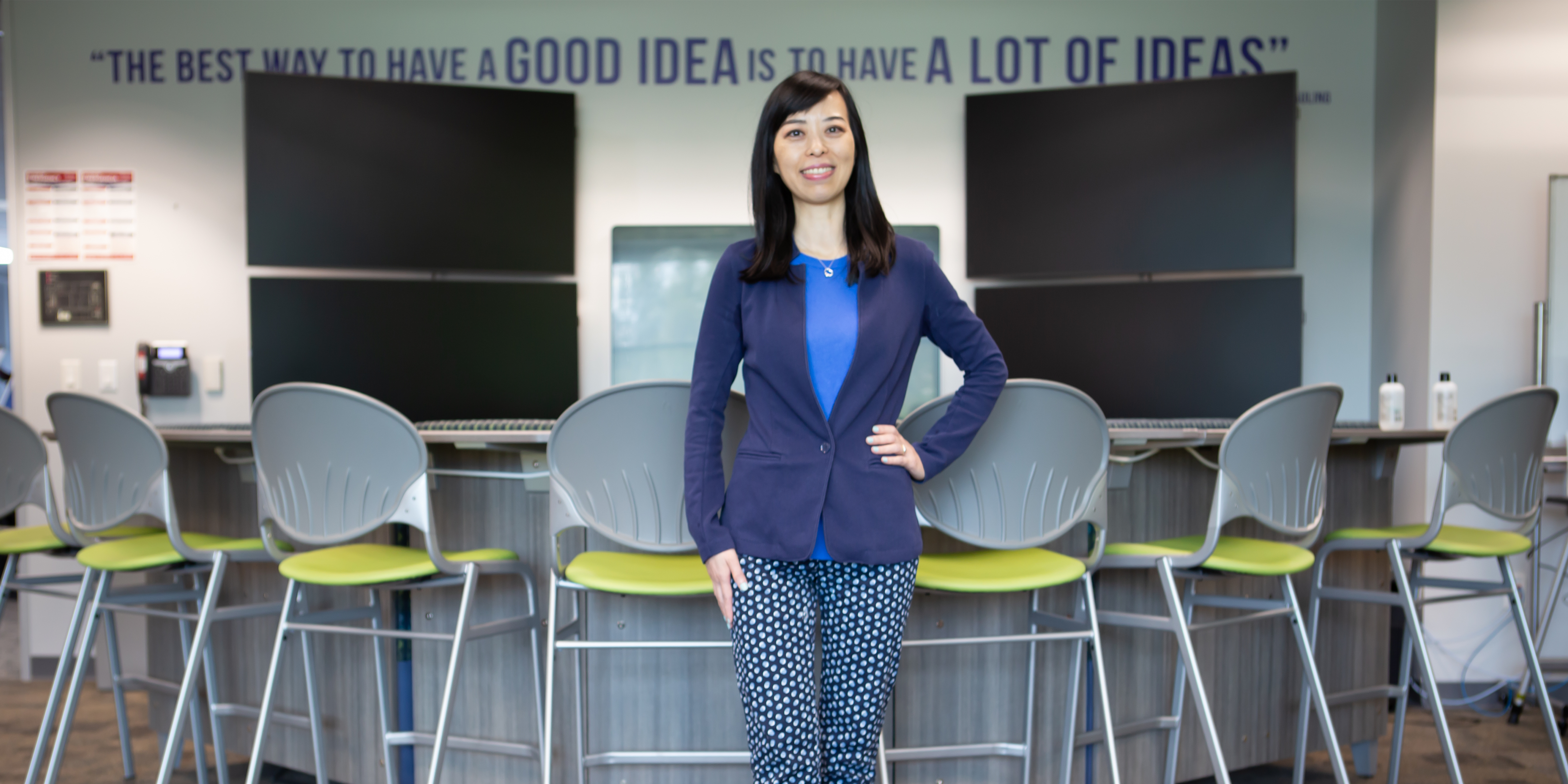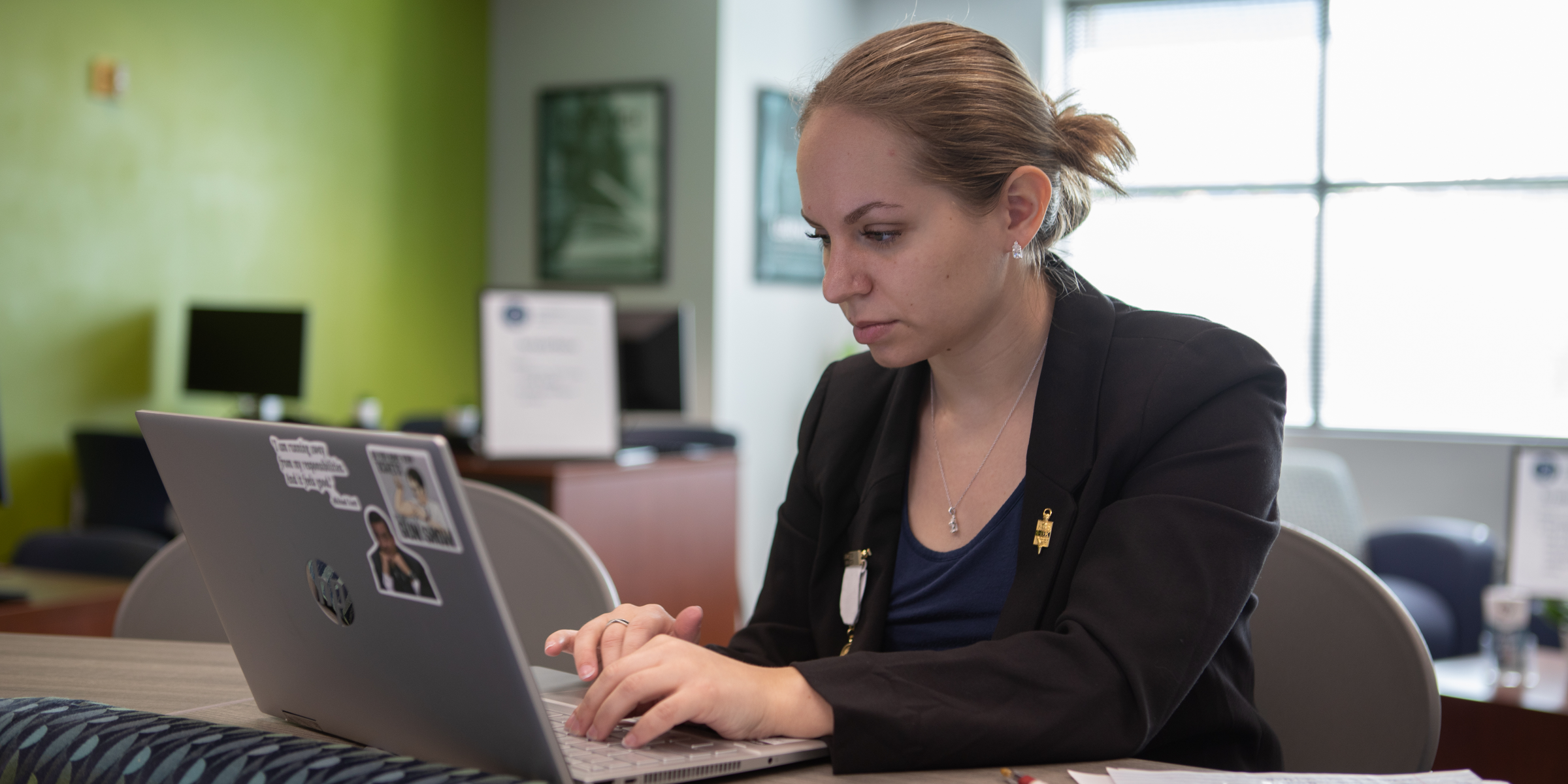Research and Innovation at Lone Star College-Tomball

It is no secret that opportunities for students, faculty, and staff to participate in research and innovation are more prominent in university settings than in community colleges in the United States (Arnaud, 2019; Wladis & Mesa, n.d.; Wladis & Mesa, 2019). On a recent study abroad visit to three community colleges, or technical schools as they are called in Denmark, the author discovered that there had been focused research and innovation departments in these institutions for many years. She realized then that the U.S. had some catching up to do.
Inspiration
A few years ago, a team at Lone Star College-Tomball (LSC-T) began dreaming of providing a place for inspiration to flow, ideas to materialize, and research to be conducted. As they started their own research to find out what something like this looks like at other educational institutions, they were shocked to only find examples at four-year institutions. This discovery fanned the flames of the team’s desire to provide one of the first research and innovation centers at a U.S. community college.
Preparation to open the LSC-T Research and Innovation Center spanned two years, during which ideas were collected and a framework developed. The initial opening was planned for 2021; however, as with many plans during that time frame, the pandemic caused it to be postponed. The center officially opened in October 2022.
Framework
The team used Robot-Proof (2017), written by Joseph E. Aoun, President of Northeastern University, to help guide the framework. In the book, Aoun recaps past economic revolutions and the profound changes they had leading up to what we are seeing today. He shares the new discipline of humanics and why it is the way to robot-proof the future workforce. His framework extends the necessary literacies of reading, writing, and mathematics to include data literacy, technological literacy, and human literacy, and adds the cognitive capacities of systems thinking, entrepreneurship, cultural agility, and critical thinking.
One way the LSC-T team wanted their center to differ from programs they found at other institutions was related to focus. University research centers often focus on certain disciplines. These centers can be more specialized, as universities tend to have more opportunities available for focused funding and multiple discipline-specific research centers (Ross et al., 2019). The goal for the center at LSC-T was to be inclusive of all subject areas.
First Semester Events and Activities
Spring 2023, the first full semester the center was open, was packed with a variety of activities and events to increase awareness of and engagement in the center (Lone Star College, 2023). Two fireside chats were scheduled: one for the recently exploding hot topic of ChatGPT, with a goal of exploring how it affects the way we teach and learn as humans, and another with community leaders discussing the ways in which they use technology in the workplace. There was also a book club discussion hosted by the campus president on The Power of Moments by Chip and Dan Heath (2017).
The “Timberwolf Travels the 7 Wonders of the World” series is an immersive virtual reality experience which allows students to discover the cultural significance of those iconic destinations. Students explore one wonder with their cohort during each of the seven bi-weekly sessions during the semester. A “Connecting the World Innovatively” series enables students, faculty, and staff to explore technology in a new way by engaging with a diverse group of speakers of various cultural backgrounds. The guests speak in their native tongue, but on location at LSC-T, we heard English translated through an AI program. Additionally, the newly launched Innovation Club shares and promotes an innovation culture on campus.

Malyse Domingue, English major, takes advantage of the
Research and Innovation Center for independent research
Other Uses
As one of the goals for the LSC-T Research and Innovation Center is to inspire the generation of ideas and cultivate a place to do so, there is a lot more on offer than events and activities. The space at the center is open and welcoming, with options to come at any time on your own or with a team. Students, staff, and faculty are able to walk in or reserve the space for lessons or brainstorming sessions. There are different seating options which can be rearranged to meet specific meeting needs, including the multimedia conference area featuring a semi-circle bar-height table, seven stools, and a five-seat banquette; the brainstorming lounge area with three single-arm sofas, six single sofas, and four ottomans; and the tools/resource area, which includes ten chairs, four tables, and six computers.
The center’s website provides an abundance of links for resources and tools to ignite questions and curiosities and to foster innovation. The Lone Star College-Tomball team’s excitement for research and innovation shows in the efforts they’ve put forth to bring their center to life for students, faculty, staff, and the community. They are thrilled to collaborate with other institutions who desire to provide focused research and innovation opportunities. Email us at TC-RIC@LoneStar.edu.
References
Arnaud, C. H. (2019, June 30). Research programs at community colleges grow. Chemical and Engineering News. https://cen.acs.org/education/undergraduate-education/Research-programs-community-colleges-grow/97/i26
Aoun, J. E. (2017). Robot-proof. Massachusetts Institute of Technology.
Ross, R, Reeves, J, Scarpinato, K, & Pelham, M. (2019, September 15). Success factors for university research development offices and activities. The Journal of Research Administration, 50(3), 107-125.
Wladis, C., & Mesa, V. (n.d.). Erasure of community colleges from the research literature: Why supporting research by community college faculty can increase the quantity and relevance of educational research. Teachers College Record: The Voice of Scholarship in Education. https://journals.sagepub.com/pb-assets/cmscontent/TCZ/Commentaries%20Collection/2022%20
Commentaries/Special%20Commentary%20Series%202022/Erasure%20of%20Community%20
Colleges%20from%20the%20Research%20Literature-1660593850.pdf
Wladis, C., & Mesa, V. (2019). What can happen when community college practitioners lead research projects? The case of CUNY. The Review of Higher Education, 42(4), 1575-1606.
Lead image: Isabelle Chen, Coordinator, showcases the newly opened Research and Innovation Center at Lone Star College-Tomball
Lori Stephens is a TRiO Advisor at Lone Star College in Tomball, Texas.
Opinions expressed in Innovation Showcase are those of the author(s) and do not necessarily reflect those of the League for Innovation in the Community College.










